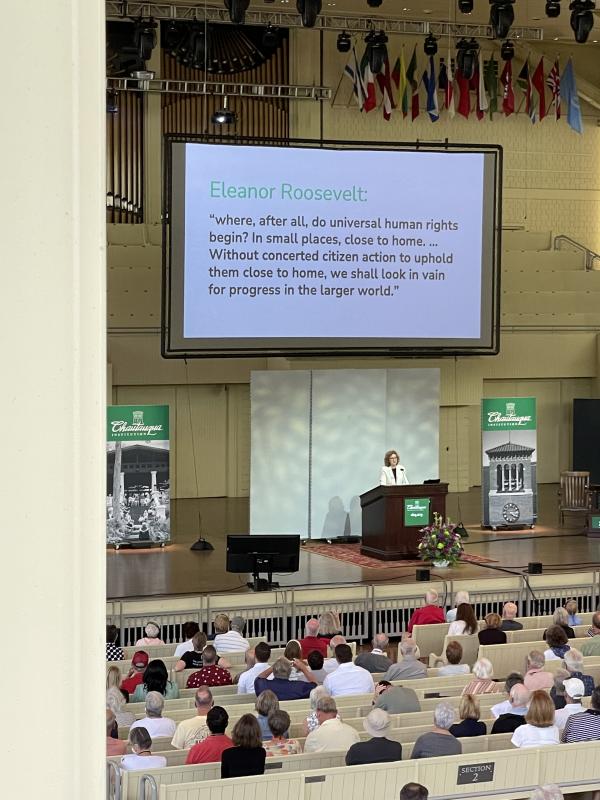In 1974, I became an RA or resident assistant in Frost Hall at Frostburg State College, which paid room and board. It was the first time in my life that I had a room of my own, and I didn’t have to share space with one of my five sisters.
I found the freedom to buy posters of Matisse and Picasso, to upend a wooden crate to store my hot pot and journals, and to fill not one but two closets with my belongings. Soon, 92 freshmen would swarm the corridors and marvel at the unusual delivery of a rocking chair from the Sears & Roebuck catalogue to Room 219.
My chair beside the window, where I wrote poetry and watched the snowflakes fall, became my home base for three more years, even though in the second semester, an English professor failed me because I had no idea where to place a comma.
In the orange cloth journal, I penned, “Dear professor sir, I have packed up all my semicolons and diction into one personified suitcase and am cutting out in medias res. Don’t talk to me about themes or give me your point of view. I will tuck your comma under my arm or wing shall I say? Imagery, yes?”
I changed my major to speech communications with minors in theater and English, and after I graduated, I learned that the teacher who failed me lost his faculty position. I wonder how many other gullible young minds he intimidated.
Now that I am a senior in real life, I still further my education and value a room of my own, which I secured last week at Chautauqua Institution. The theme for week three was The Future of Human Rights.
I was inspired by the daily sermons of Rev. Michael-Ray Mathews, whose lesson, “Lift Every Voice and Sing,” made me hopeful that we can and will take the suffering of other races seriously.
Later that week, Nobel Peace Prize Laureate Nadia Murad spoke about the day, Aug. 3, 2014, when ISIS attacked her Yazidi community and killed her mother and six of her brothers, after which she was forced into sex slavery.
Eventually, Murad escaped and founded a nonprofit called Nadia’s Initiative. She became a goodwill ambassador for the United Nations Office on Drugs and Crime, and she is a fierce advocate for human rights.
Murad, the first of her siblings to attend school in her tiny village, practiced her English skills during COVID; she is currently a sophomore at the American University, majoring in sociology.
In 2018, she wrote, “…the fate of more than 3,000 children and women in the grip of ISIS is still unknown.” Nothing has changed today, she says. I bought her book, “The Last Girl: My Story of Captivity, and My Fight Against the Islamic State,” so I could learn more about her journey and how much our world is made up of dormitories of a different kind.
Our Cape Region is made up of many dormitories, too. We are a vibrant and caring community where we can listen and respect the rights of others if we make a choice to do so. Our youth are the future, yet as seniors, we can teach them too. We can’t despair. Rev. Mathews told his audience, “We have to walk together to not get weary.”
Everyone has the right to a room where they feel safe. To learn more about Chautauqua Institution, visit chq.org.
Reach Lisa Graff at lgraff1979@gmail.com. Find her on Facebook by searching Our Senior Yearbook; on Twitter @#lisajgraff1 and at lisajgraff.com.
























































